New technologies and practices for family farming
Modalidad: Self-study | Desde el 07-09-22 hasta el 31-12-24
The Course "New Technologies and Practices for Family Farming" is part of the Regional Technical Platform for Family Farming (https://www.fao.org/americas/daf/plataforma/es/), in collaboration with the projects "Sowing Capacities" (ABC, MAPA Brazil, MADR Colombia and FAO) and "Farmers Organizations for African, Caribbean and Pacific countries - FO4ACP" (IFAD, EU, OACPS, PROCASUR and FAO). This platform promotes institutional and technical innovations that strengthen family farmers and small producers around the world, both by mobilizing knowledge, experiences and good practices and by fostering dialogue, learning and collaboration among various internal and external entities associated with FAO.
Innovation has marked several historic moments, having revolutionized countless processes. Today, technology is related to almost all productive activities. The topic of innovation has been flooding agroindustry and expanding into the sphere of family farming, where the dynamics for the introduction of new technologies are structurally different compared to those of large agroindustrial chains. In this context, the purpose of this course is to present the applications of technological and social innovation in family farming and the challenges related to its implementation, based on experiences and outstanding cases from Latin America and the Caribbean.
Specifically, the course seeks to promote the innovation ecosystem with respect to the agents involved in family farming and to encourage the use of new technologies as a platform for the provision of services, connection with the market and quality of life. Thus, this course will discuss the use of new technologies in family farming, seek to understand what technological and social innovation is and its various possibilities, visualize the public policies that can contribute to the innovation process, understand the innovation pathways for family farming through management, production and marketing, reflect on adding value through agro-industrialization, agro-tourism and agro-events (AVAAA), and finally, understand how to use digital technologies.
This training course is part of the Regional Technical Platform for Family Farming (https://www.fao.org/americas/daf/plataforma/en/) in partnership with the projects “Sembrando capacidades” [Sowing Capacities] (ABC, MAPA Brazil, MADR Colombia and FAO) and “Farmers Organizations for African, Caribbean and Pacific countries - FO4ACP” (IFAD, EU, OACPS, Procasur and FAO). It promotes institutional and technical innovations that strengthen family farmers and small producers around the world, both by mobilising knowledge, experiences and best practices, and by fostering dialogue, learning and collaboration among various internal and external partners of FAO.
* Remember to write your name and surname correctly, as they will appear on the certificate.
You will not be able to change them later.
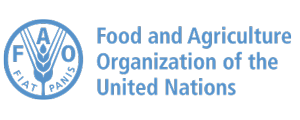 |
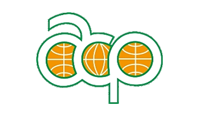 |
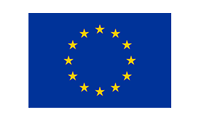 |
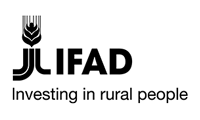 |
 |
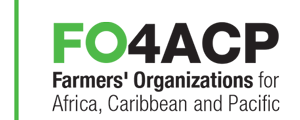 |
Course description
- Name:
-
New technologies and practices for family farming
- Course type:
-
salfe-paced course
- Total duration of the course:
-
20 chronological hours
- Course modality and methodology:
-
This training course is based on self-learning. It is the trainees’ responsibility to acquire their own knowledge. The training course is organised in four topics that will be explored sequentially, i.e., only once a topic has been fully reviewed can you move on to the next one. During the training course, the participants will have the opportunity to review concepts, learn procedures and reinforce them, as well as apply criteria. The topics of the training course are articulated around the presentation of different applications of technological and social innovation in family farming and the challenges related to their implementation based on experiences and exceptional cases from Latin America and the Caribbean.
The methodology includes the systematic use of learning tools and self-assessment exercises for each unit that will facilitate the understanding of the contents. The study of the contents of the course requires a time commitment of about 20 hours, although this may vary depending on the references to be reviewed. One-hour sessions are recommended thrice a week.
- Start and end of course:
-
from 07-09-2022
- Intended audience:
-
- Public managers and professionals working in the implementation of programs and actions related to rural development mechanisms and programs.
- Representatives of family farming organizations.
- Professionals working in the field of South-South Cooperation in its different modalities.
- Civil society leaders, representatives of the private sector and academia, and people interested in the course program.
- Technicians and coordinators involved in projects managed by FAO in the region.
- General objective:
-
To present the applications of technological and social innovation in family farming and the challenges related to its implementation based on exceptional experiences and cases from Latin America and the Caribbean.
- Specific objectives:
-
- To analyse the use of new technologies in family farming.
- To understand technological and social innovation and its potential.
- To identify public policies that can support the innovation process.
- To understand the different innovation pathways in family farming through management, production and marketing.
- To reflect on value addition through agro-industrialisation, agro-tourism and agro-events (VAAAA).
- To understand the use of digital technologies.
- Contents:
-
- Technological innovation
- Innovation beyond the use of technology
- Innovation pathways
- Value addition through agro-industrialisation, agro-tourism and agro-events (VAAAA)
- Pass requirements:
-
Passing the training course involves a final assessment at the end of the learning process. This assessment requires a pass rate of 70% and can be taken any number of times.
The grading of the evaluation will be according to the following percentage scale:
- Distinction: 90 to 100 points
- Merit: 80 to 89 points.
- Pass: 70 to 79 points.
- Fail: 0 to 69 points
- Hardware requirements:
-
For the correct completion of the course, the participants must have the following minimum technical specifications:
- PC with Internet connection.
- The quality and speed of browsing and downloading documents will depend exclusively on the connection bandwidth.
- RAM memory greater than 1GB.
- Free hard disk space greater than 500 MB.
- 600 MHz processor or higher.
- Software requirements:
-
- Latest version of Google Chrome web browser, Mozilla Firefox, Safari or Opera, with JavaScript activate
- Screen resolution of at least 1024x768 pixels (width by height).
- PDF document reader.
- Additional requirements:
-
- Microsoft Office skills (Word, PowerPoint, Excel), e-mail management and Internet browsing.
- Availability of at least 8 to 10 hours per week for reading and carrying out course activities. Participants may choose their own course schedule and enter the classroom at any time, but should consider entering at least three times a week to complete the required readings and activities.
- Language:
-
The course will be taught entirely in English
- Course Code:
-
ITAF202207-EN
- Certification:
-
Once the course is passed, participants will be able to automatically download the certificate granted by the FAO RLC on the platform where the course is hosted.
Please remember to save your certificate, as it will not be available for download again once the course has closed.
- Better to which it belongs:
-
BP4: Small scale producers equitable access to resources
- Related FAO Regional Initiative:
-
RI2. Family Farming and inclusive food systems for sustainable rural development.
- Integrated clusters:
-
8 (Family Farming)
- Supervising Officer:
-
Luiz Beduschi
- Contact:
-
If you have any questions, please contact [email protected]

